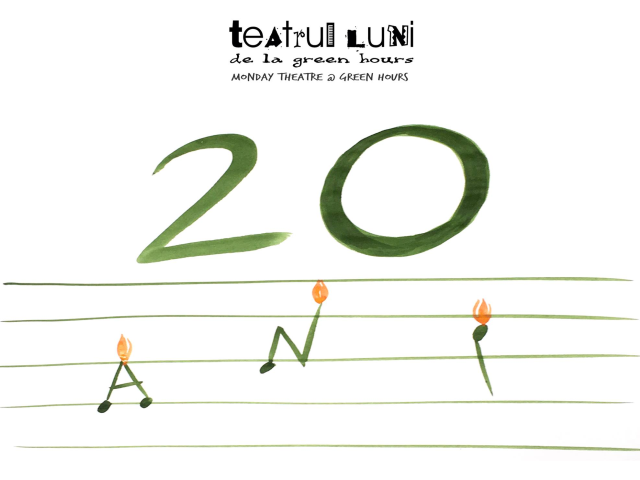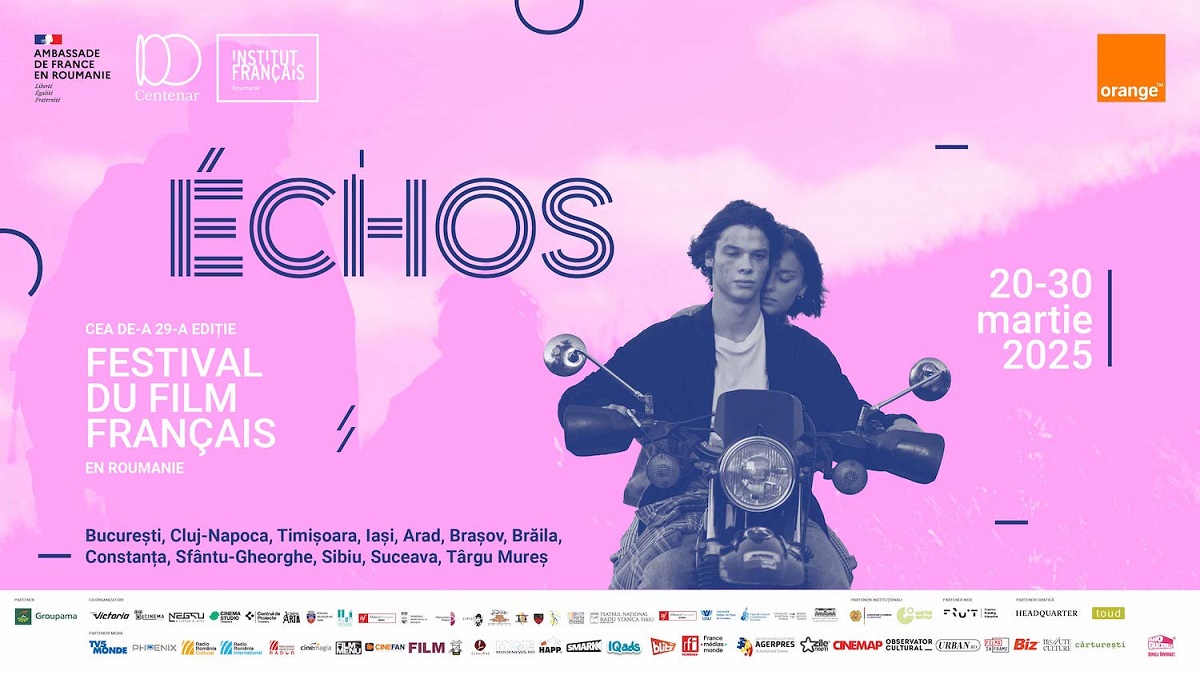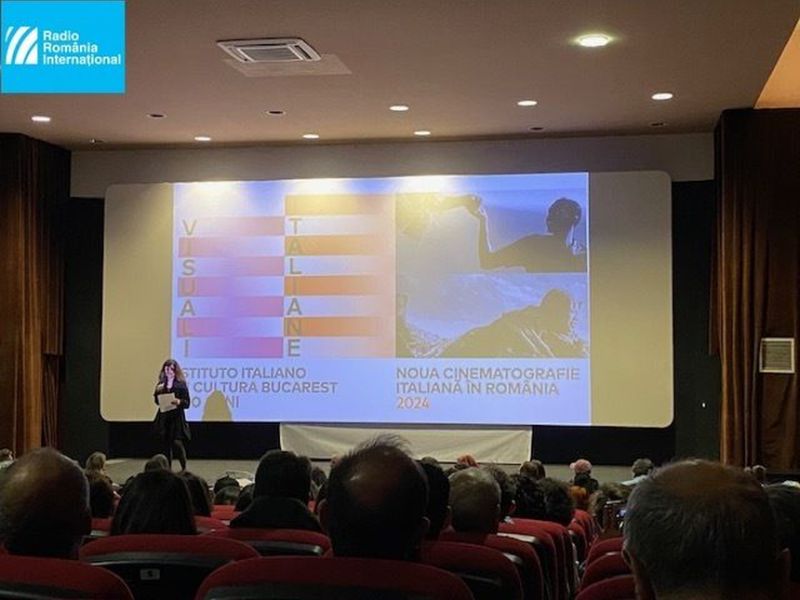Green Hours’ LUNI Theater Celebrates 20 Years
Click here to discover the story of the first post 1990 independent theatre in Romania

Luana Pleşea, 23.12.2017, 13:00
The 1st of December 1997 is the date of birth of the first post-1990 independent theater in Romania, set up in a basement on Victory Road, at nr. 120. Shortly after, it was called the Green Hours Luni Theater, because it was based in the Green Hours bar and club set up in 1994, a bar its founder, Voicu Radescu, wanted to make different from the others. Voicu was not a theater man, but his brother, Vlad Radescu, is an actor, famous abroad due to his leading role in the perennial film ‘Ciprian Porumbescu’, directed by Gheorghe Vitanidis. Vlad’s wife is Mihaela Radescu, working at the Small Theater, but having strong ties with the independent stage. This context, and the wish of young artists to express themselves more widely than they could in state theater, led to the creation of this independent theater at Green Hours.
Voicu Radescu: “The Green Hours jazz club had been open for three years. My brother and sister-in-law were well-known theater people. Through them I met a few theater students. They started creating a number of theater skits, a few minutes long, during breaks at jazz concerts. That happened in 1995, in autumn and winter. The poster listed them as ‘acting performances’ with various actors, such as Mihaela Radescu, Dragos Bucur, Bogdan Dumitrache… At some point in 1997 I met Maia Morgernstern, and I asked her if she would like to stage 10 representations of a show in the Green Hours jazz club. Maia was with Dorina Crisan Rusu. They told me to go to the National Theater in two weeks time. There they played for me on the upright piano a part of what was to become ‘Chantan au Lai’, their show that started the permanent seasons at Luni Theater. It was not yet named Luni Theater.
After Maia Morgernstern and Dorina Crisan Rusu broke the ice at Green Hours, more and more actors and show creators started stepping into the little club on Victory Square.
Voicu Radescu: “There was a rush, I could say, but not right away. After Maia’s show, Mihaela Radescu came with a show, then Coca Bloos had a one woman show there, during the period when the National Theater was staging the Danaids, directed by Silviu Purcarete, and Coca was phenomenal in that show. It was a positive shock for us when she accepted acting on our stage. Then we had another show that was another stepping stone, with Coca Bloos and Mihaela Radescu, with Lucian Ban on the piano, called ‘Today I… Ubu’, based on texts by Alfred Jarry, a show that got first prize at the first edition of the Humorror Festival. For us it was an encouragement, because we saw that we do things appreciated not only by the audience, but by experts too.
Then came the flood, with young directors like Theodora Herghelegiu, Gianina Carbunariu, Radu Afrim, Ana Margineanu, but also older directors like Alexandru Dabija and Alexandru Tocilescu. Alongside them came actors like Andreea Bibiri, Marius Stanescu, Daniel Popa, Dorina Chiriac, Lia Bugnar, Serban Pavlu, and many, many more. They are all an integral part of the two decade history of Luni Theater. One of the most important moments in this history is the arrival of Florin Piersic Jr., who staged here four shows in the early 2000s. The first was ‘Dice and Books’, by Sam Henry Kass, staged in 2001. In 2003, for his role in ‘Sex, Drugs, Rock&Roll’ by Eric Bogosian, Piersic Jr. got the UNITER prize for best leading actor.
It was the first award granted by UNITER to an independent show. Florin Piersic Jr.’s first contact with Luni Theater was on December 31, as the actor recalls: “I was in Bucharest and didn’t have anything specific to do. I don’t know how I found out… I probably saw a flier for a show on New Year’s Even, around 8 or 9 PM. The place was totally different from what I had seen before. Then, being rather desperate from a professional point of view, I found a play, I spoke to Voicu, and he agreed, so everything went into motion. I said it then, and I will keep saying it, without Green Hours I wouldn’t exist. It was like a springboard. Many, many people came to see my shows there, and wanted to work with me.
Luni Theater, with its maximum capacity of 100 seats, was for Florin Piersic Jr. his school, support, emotion, freedom of expression: “We were seen as some kind of enfants terribles, people with no direction in life. The preconception at the time was that you had to be employed by a theater, or you were not considered a good actor. But things were nothing like that. A lot of people came there who were upset with working in state theaters, and who could truly express themselves in independent theater. To have memorable parts, to get awards for acting on a two by three meters stage with a tiny audience, 50, 70, 100 at the most. For a lot of people it was strange that these actors got on stage and spent their energy for such a small audience, since if you act on television, you have an audience of millions. For me, things are completely different. Theater, that vibe it has, can never be replaced.
After 20 years, when independent theater spaces have proliferated in Bucharest, Luni Theater continues to be the same special and generous host for young actors. It is the case for the Frilensar troupe, coming from Iasi, coordinated by Daniel Chirila, an actor, director and playwright: “Everything unfolded very quickly for us. I can’t believe we’re already at our fifth show. It is as if just yesterday we were in school and were thinking: ‘look, Lia Bugnar is on stage at Green Hours… and Marius Manole is there too… it must be really cool’. And all of a sudden, Voicu invites you to film an interview for the 20th year anniversary of Green Hours. It is a great atmosphere, and we feel this is our place. We feel free, which is very important for us. I continue to act here because I believe it is the engine of independent theater in our country.





























